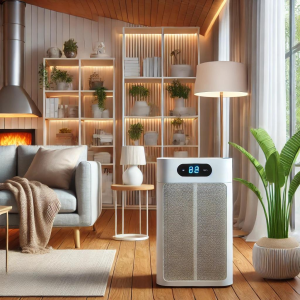Introduction
Increasing numbers of people are diagnosed with various allergies daily. These allergies can stem from sources such as radiation, food, cosmetics, environmental conditions, and allergens like pollen and dust. Allergies compromise the immune system, making the body susceptible to other illnesses. While there is no cure for allergies, there are ways to manage and alleviate symptoms effectively.

Maintaining a Clean Home for Allergy Relief
Keeping your home clean is essential in managing allergies. Regular cleaning helps reduce allergens like pollen, dust mites, pet dander, and mold. Use a vacuum cleaner with a good air filter to trap dust and keep the air clean. Dust mites thrive in warm, dark places, so use sprays or powders to eliminate them from carpets and furniture. Encase your mattress, box springs, and pillows in zippered covers to protect against dust mites. Use a dehumidifier in damp areas like the basement to prevent mold growth.

Effective Cleaning Products
Choose cleaning products that are effective against allergens. These are available in various forms, including powders, sprays, and liquids. Personal care products can also help prevent skin allergies. Air filters are another useful tool to keep your home environment clean by removing pollen and other airborne particles. When pollen levels are high, keep windows closed and use air conditioning with an air filter to keep the indoor air clean.

Medications for Allergy Relief
There are various medications available to relieve allergy symptoms. However, it is essential to consult your doctor before using over-the-counter drugs, especially if you have asthma or sinus problems. If you prefer not to take medication, acupuncture might be an alternative. Acupuncture helps maintain balance and harmony in the body and can alleviate allergic reactions. It involves using tiny needles to stimulate specific points on the body, reprogramming the nervous system to respond differently to allergens.

Allergy Relief Center
Allergies can be particularly troublesome when the weather changes. Common allergens like mold, pollen, and dust mites can cause symptoms such as sneezing, watery eyes, and fatigue. Seeking medical help is crucial for proper diagnosis and treatment. Providing detailed information about your symptoms to your doctor will help them prescribe the most effective treatment.

Preventing and Treating Allergies
Allergies can be triggered by various factors, including dust, pollen, mold, and pet dander. To minimize exposure to these allergens, keep your home clean and free of dust. Use air conditioners and dehumidifiers to filter the air and reduce allergen levels. Your doctor may prescribe medications such as Corti-Costeroids to relieve chronic allergy symptoms. If symptoms persist, continue seeking medical advice and explore different treatments to find what works best for you.
Understanding Angioedema
Angioedema is a condition marked by swelling beneath the skin, often triggered by allergens like certain foods, insect stings, or medications. Symptoms include hives, swelling, and itching. If you experience these symptoms, it is essential to seek medical attention. Your doctor can help identify the triggers and recommend appropriate treatment.

Common Causes of Allergies
Allergies affect millions of people and can be caused by various factors, including food, pollen, and dust mites. Symptoms include runny nose, sneezing, and itchy eyes. Identifying the specific allergens causing your symptoms is crucial for effective treatment. Allergy tests can help determine what you are allergic to, and medications or allergen avoidance strategies can provide relief.
Using Inhalers for Allergy Relief
Inhalers are commonly used to treat allergies and asthma. They work quickly to open the airways and make breathing easier. However, inhalers can have side effects, so it is essential to use them as prescribed by your doctor. If you experience any adverse effects, consult your doctor immediately.

Yoga for Allergy Relief
Yoga has been shown to reduce allergy symptoms by promoting natural breathing and relaxation. Practicing yoga can help manage respiratory conditions like asthma and improve overall well-being. Combining yoga with other treatments, such as essential oils and aromatherapy, can enhance its effectiveness in relieving allergy symptoms.
Managing Allergies at Home
Keeping your home environment clean is vital for managing allergies. Use air filters, vacuums, and dehumidifiers to reduce allergens. Regularly wash bedding and use protective covers to minimize dust mites. Staying informed about the latest treatments and remedies can also help you manage your symptoms more effectively.

Relief from Pollen Allergies
Pollen is a common allergen that can cause symptoms like sneezing, runny nose, and itchy eyes. Checking pollen levels in your area and taking precautions, such as using nasal sprays like NASONEX, can help manage these symptoms. Consult your doctor to find the most suitable treatment for your pollen allergies.
Dr. Amanda Green is an expert in stress management and sexual health education, holding a Ph.D. in Psychology. She has dedicated her career to helping individuals manage stress to improve their overall well-being and intimate relationships. Dr. Green offers workshops and private consultations that teach mindfulness and relaxation techniques specifically designed to reduce stress and enhance sexual intimacy.


